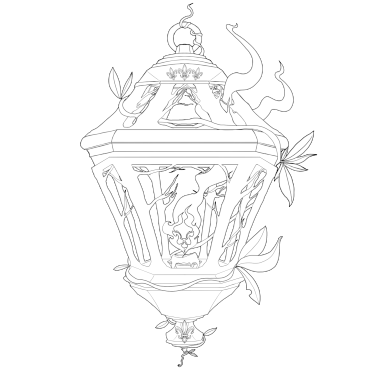Work, Trade, and Coin
Luisant has a mixed economy – primarily a labor and barter system, with small monetary elements.
The village’s roots lie in traditions that had little regard for coin. The concept and use of money was slowly introduced by the presence of the nobility and church, but the remoteness and small size of the community seriously hampered these efforts. To this day, many villagers use no coin at all in their day-to-day life.
Most of the work done in the community is a matter of simple survival and the requirements of a feudal system. Resources and labor are used to better the community, and to fulfil the orders of the noble house. The nobles also, in turn, provide resources for the community – either redistributing what they take, or bringing in from outside what the community otherwise can’t supply.
The current nobles are generally considered reasonable by the common folk, and don’t make excessively onerous demands. Most peasants end up with a good amount of resources and time to spare. These are often exchanged directly in transactions – e.g. “I’ll trade you three soft iron ore for a side of meat”.
Since almost everyone is fairly familiar with almost everyone else, there is also an implicit favor economy. Goods, services, and time are often simply given without an immediate exchange, with the understanding that the favor will be eventually repaid. If one person takes many things and gives back little, the community eventually catches on, and starts to shun or otherwise punish them. Of course, there are often disagreements about who might owe what to whom – such small arguments are often the lifeblood of village gossip.
Quite a few people see no need to have any hard money, or refuse to use it. Others might have a small stash and use it on occasion, with some preferring it to the “old-style” barters and favors, and thus using it daily. Copper and silver are commonly used. Gold coins are known to be used by the nobility, but few peasants ever see a gold coin, much less hold one.
The nobles have been known to reward their subjects with coin, and the local mage sometimes pays in coin as well. The other major sources of coin are the market and the peddler. The market is a game system; the peddler is an NPC.
The Market
The market is an abstraction representing the background population of the town, and their willingness to buy and sell. It is accessed using various levels of the Mercantile skill. Mercantile 1 allows looking at the current prices & stocks; Mercantile 4 allows buying and selling goods directly from the market; Mercantile 5 allows bounties to be placed.
The market buys and sells “typical” goods – most common and uncommon items. The prices of goods shift over time; the price list is updated before each game event. This price is both the purchase and sale price.
The market is mostly a closed economy. This means the amount of coin and goods within the market is fixed. For example, if the market starts with 20 Hard Iron available for purchase and that iron is bought by PCs, there will be no more iron available to buy until PCs decide to sell some to the market. Money & items can enter the market only through PC action (buying and selling), or in rarer cases by story events (e.g. a devastating fire might destroy items in the market).
The market is available at any time during game events while Logistics is open and staff are available. However, market orders may take time to process, depending on staff availability. Players drop off market orders (with coin or tags) in an “inbox”; they will be handled as time permits and the result put in an “outbox”. Orders are handled on a first-come first-served basis. If part of an order can’t be filled, e.g. the item was already sold out, unspent coin/tags will be returned in the “outbox”.
At Mercantile 5, characters also have the option to place “bounties”. Each bounty is a request for a task and a reward, which must be in coin and must be kept in Logistics while the bounty is up. If the reward is sufficiently interesting for the task, NPC(s) will attempt to complete the task. If NPCs fail or choose not to take the task, the character gets all their coin back (returned to the “outbox”, just as with market orders).
Bounties may be for any act, even “illegal” ones. Under normal circumstances, bounties are not publicly known – but it is possible for an NPC attempting a task to be intercepted and interrogated.
The Peddler
One of Luisant’s few connections to the outside world, the Peddler visits occasionally with goods and gossip from distant cities.
The Peddler shows up, on average, three times a year. Story events may influence this timing. When the Peddler arrives, they have some inventory of goods to sell, coin to buy goods with, and potentially useful information. The Peddler is an NPC that can be interacted with normally; characters may negotiate and haggle over price, get on the Peddler’s good or bad side, and so on. Unlike the Market, the Peddler’s supply of both goods and coin changes with each visit.
The Peddler typically remains for at least several hours, giving people time both to do business and to just chat, if desired. On occasion they may be in the village for a day or more.
